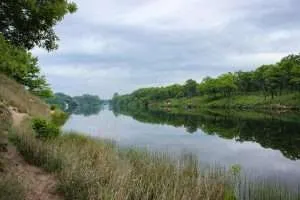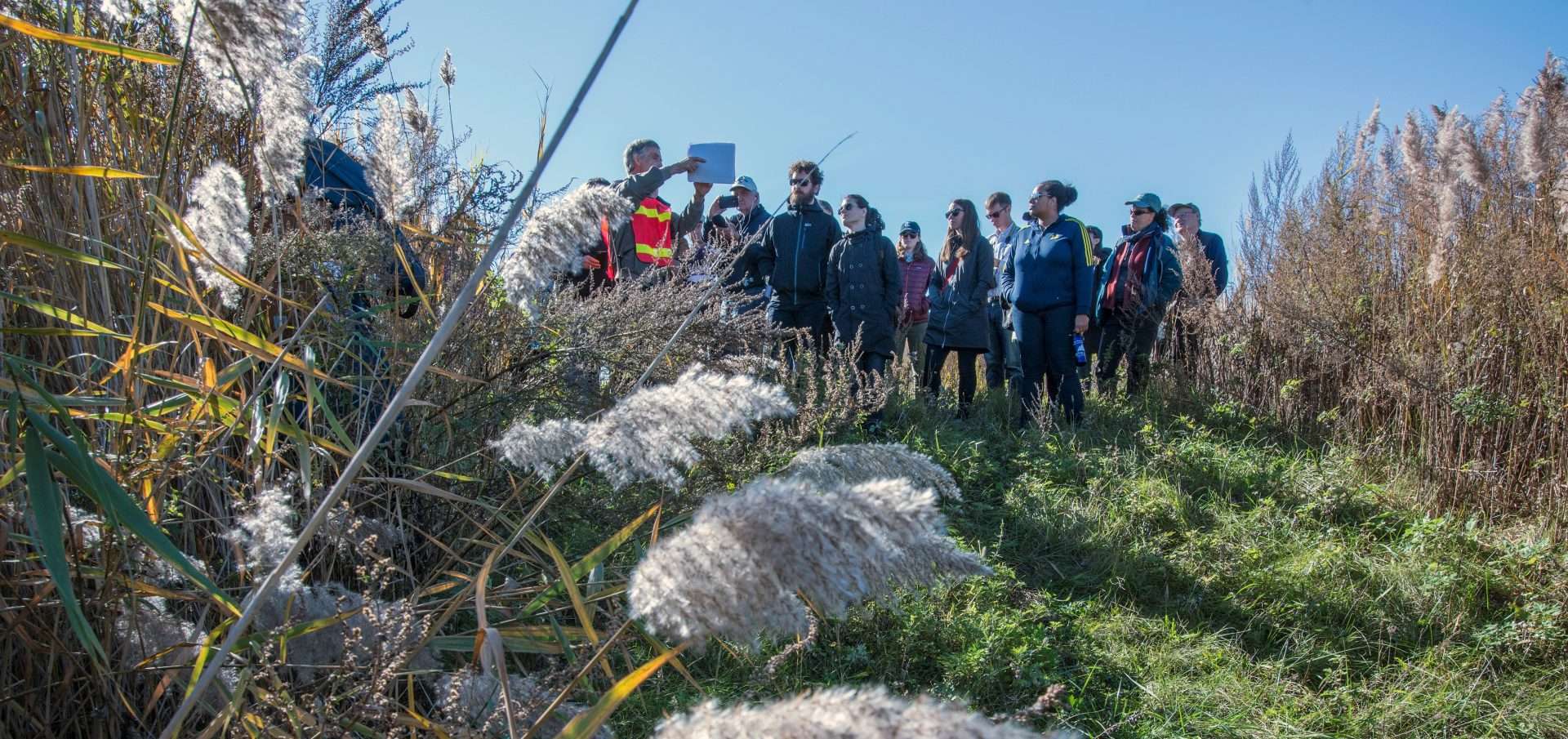On November 5, Openlands Greenways Director Ders Anderson joined local community leaders, and guided a tour of potential public access and ecological restoration sites along the shores of Lake Calumet. Easily accessible to the neighborhoods of Pullman and Roseland, Lake Calumet is the largest body of water in the city of Chicago; however, the shoreline has sat vacant, cut off from public access for decades.
As part of the Lake Calumet Vision Committee, Openlands has been working in partnership with the Southeast Environmental Task Force, the Alliance for the Great Lakes and Friends of the Parks to develop new parkland and recreation opportunities for local communities at this site. Representatives from Congresswoman Robin Kelly’s office (IL-2nd), Congressman Michael Quigley’s office (IL-5th) and the Chicago Park District joined the Lake Calumet Vision Committee along with leaders from the Active Transport Alliance, Friends of Big Marsh, the Metropolitan Planning Council and REI’s Outdoor Programs for a tour of the underutilized sites.
“When Lake Calumet came under management of the Illinois International Port District decades ago, the surrounding neighborhoods were cut off from their 100-year access to this water resource, and the shore has remained undeveloped since,” explains Anderson. The committee envisions future recreation opportunities for biking, jogging, paddling and sailing, as well as a new trail linking the Pullman National Monument to the new urban mountain bike Park at Big Marsh. The committee has engaged local residents both for their input and reaction to the proposal and found overwhelming support for access to the lake. When completed, the proposed park and recreation sites would restore public access to this neglected natural treasure.

The creation of new parkland at this site would further connect the growing network of green spaces in south Chicagoland maintained by the Chicago Park District. Nearby Big Marsh is home to the recently opened 278-acre bike park, Chicago’s first eco-recreation destination, with Heron Pond, Indian Ridge, Deadstick Pond and Hegewisch Marsh located at the southern end of the lake.
But Lake Calumet is valuable for many more reasons than just the recreation opportunities. In 1980, the Illinois Department of Natural Resources listed Lake Calumet on its Illinois Natural Areas Inventory, which listed habitats within the state in vital need of conservation and which has served as a guide to land preservation to this day. However, despite the need for preservation of this aquatic ecosystem, little action has been taken to protect Lake Calumet.
At the north end of the lake sits the 140-acre Square Marsh, which the committee hopes to see restored as a hemi-marsh. A hemi-marsh is an aquatic ecosystem, 50% of which is open water necessary for birds to identify the site as habitat, and the other 50% comprised of aquatic plants to provide wildlife with food and shelter. Along with the recently restored hemi-marsh at Big Marsh, the restoration efforts at Lake Calumet would provide a dramatic increase in habitat.
Conditions for restoration are ripe: water levels in Lake Calumet are ideal for wetlands restoration, the lake provides a variety of habitats to support an array of wildlife, and the water quality in the lake is believed to be improving thanks to local efforts to curb runoff from industrial sites. All totaled, the restoration site could support more than 500 acres of new habitat.
With everything moving in the right direction for a positive redevelopment of the shores of Lake Calumet, Openlands hopes to build on existing local support for the plan and realize this important project. “There is very strong local support for this project, it is consistent with the land use plan adopted by the City of Chicago, and Lake Calumet has long been identified as a site with major conservation potential,” explains Anderson, “What we need now is financial support and the will of our elected leaders to see it through, but I am confident they will do the right thing for the community.”
